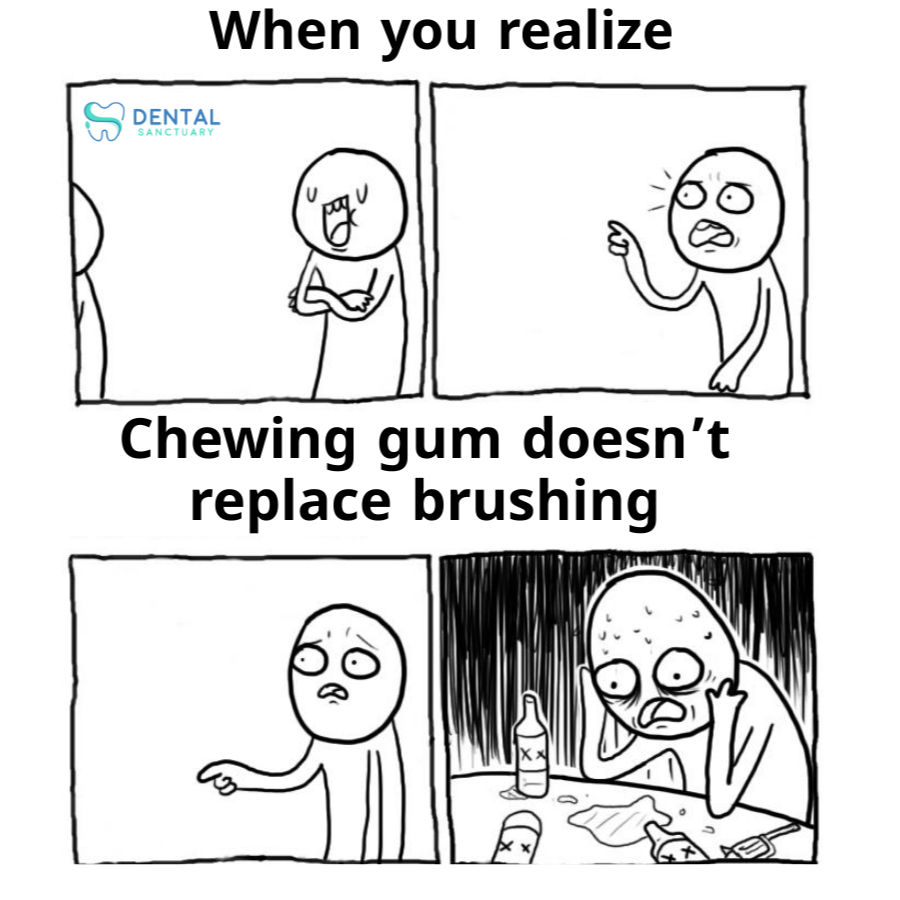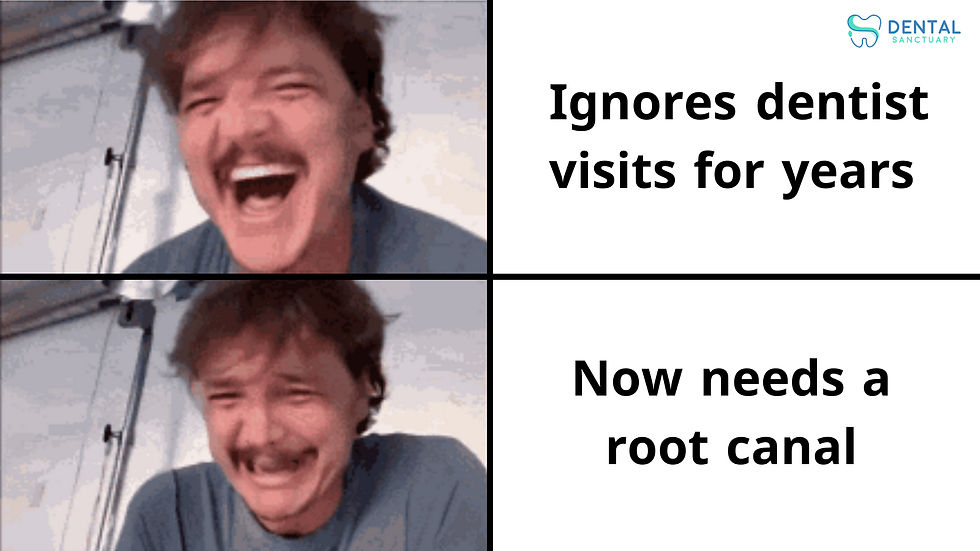Debunking Common Dental Myths: Separating Fact from Fiction
- Dr. Isha S Singh

- Mar 29, 2025
- 3 min read
Updated: Jul 29, 2025
Introduction
When it comes to dental health, misinformation is everywhere. Many people still believe in age-old myths that prevent them from maintaining good oral hygiene and seeking proper treatment. At Dental Sanctuary, we believe in educating our patients with the right information to promote better oral care. Let’s debunk some of the most common dental myths and misconceptions.
Myth 1: Extracting Upper Teeth Affects Eyesight
Fact: There is no connection between tooth extraction and eyesight. This myth likely originates from the fact that facial nerves are interconnected, but dental procedures, including extractions, do not impact vision. Delaying necessary extractions can lead to infections and further complications.
Myth 2: Bleeding Gums Are Normal
Fact: Bleeding gums are a sign of gum disease, inflammation, or poor oral hygiene. Healthy gums should not bleed during brushing or flossing. If you notice bleeding, it could indicate gingivitis or periodontitis. Visit your dentist for a check-up and improve your oral care routine.
Myth 3: Brushing Harder Cleans Better
Fact: Brushing too hard can damage tooth enamel and cause gum recession, leading to sensitivity and other dental issues. Instead, use a soft-bristled toothbrush and gentle, circular motions to clean your teeth effectively.

Myth 4: Baby Teeth Don’t Require Brushing
Fact: Baby teeth play a crucial role in speech development and guiding permanent teeth into place. Neglecting oral care for children can lead to early cavities, affecting long-term dental health. Parents should start cleaning their child’s teeth as soon as they erupt.
Myth 5: Sugar-Free Products Are Completely Safe for Teeth
Fact: While sugar-free products reduce the risk of cavities, many contain acidic additives that can erode enamel over time. It’s essential to rinse your mouth after consuming acidic drinks or foods and maintain proper oral hygiene.
Myth 6: Chewing Gum Can Replace Brushing
Fact: Sugar-free chewing gum helps increase saliva flow, reducing bacteria and plaque buildup, but it cannot replace brushing and flossing. Brushing twice a day and flossing remain essential for maintaining oral health.

Myth 7: Only Sugar Causes Cavities
Fact: Starchy foods like chips and bread break down into sugars and can contribute to tooth decay. Additionally, acidic foods and poor oral hygiene play a significant role in cavity formation. Regular brushing and flossing are necessary to prevent cavities.
Myth 8: You Should Avoid the Dentist Unless You Have Pain
Fact: Many dental problems, like cavities and gum disease, do not cause pain in their early stages. Regular dental check-ups help detect issues early, preventing costly and painful treatments later.

FAQs on Dental Myths and Oral Health
Q1: Can brushing too hard damage my gums?
Yes, brushing too hard can cause gum recession, exposing the roots and leading to sensitivity and gum disease. Use a soft-bristled toothbrush and gentle strokes.
Q2: Does chewing gum prevent cavities?
Sugar-free chewing gum can help neutralize acids and stimulate saliva, but it does not replace brushing and flossing. It’s a helpful addition to oral care, not a substitute.
Q3: Do starchy foods cause cavities?
Yes! Starchy foods like chips, pasta, and bread break down into sugars that feed cavity-causing bacteria, increasing the risk of tooth decay.
Q4: How often should I visit the dentist?
Even if you have no pain or visible issues, you should visit the dentist every 6 months for a routine check-up and professional cleaning.
Q5: Are sugar-free sodas bad for my teeth?
Yes! Even sugar-free sodas are acidic, which can erode tooth enamel over time. Drink water after consuming acidic drinks to protect your teeth.
Conclusion
At Dental Sanctuary, we are committed to ensuring our patients have access to the right information about oral health. By debunking these common myths, we can work towards a healthier, cavity-free future.
If you have any doubts about dental care or need expert advice, book an appointment with us today and take the first step towards better oral health!
.png)




Comments